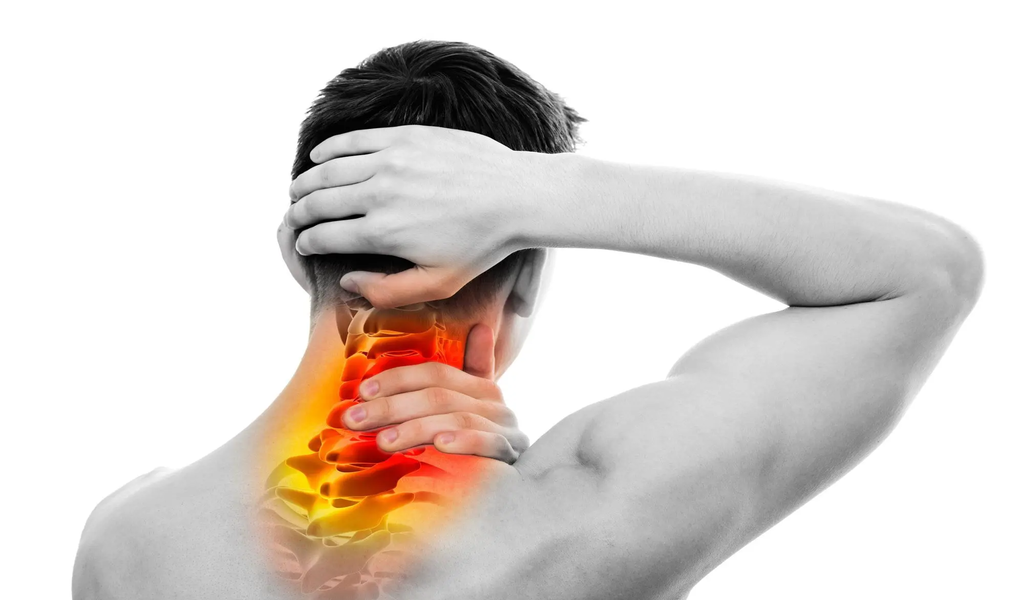Health
Understanding Pinched Nerves: Causes, Symptoms, And Diagnosis

Pinched nerves, medically known as nerve compression or nerve entrapment, can cause a wide range of discomfort and pain. These conditions often affect people of all ages and can be caused by various factors.
We will look into the reasons in this in-depth guide, symptoms, and diagnosis of pinched nerves, shedding light on how South Valley Neurology can provide essential insights and solutions to those grappling with these issues.
What is a Pinched Nerve?
Before we dive into the intricacies of pinched nerves, it’s crucial to understand what they are. Brains and the rest of the body talk to each other through nerves, which carry important signs and messages. If you pinch or squeeze a nerve, it can stop this connection, which can cause a lot of pain.
Common Causes of Pinched Nerves
Herniated Discs: One of the most frequent causes of pinched nerves is a herniated or bulging disc. These discs act as cushions between the vertebrae in our spine. When they become damaged or displaced, they can press against nearby nerves, causing pain and discomfort.
Bone Spurs: Over time, the bones in our bodies may develop small, bony growths known as bone spurs. These growths can impinge on surrounding nerves, leading to pinched nerve symptoms.
Repetitive Movements: Certain repetitive movements or activities, especially in the workplace, can contribute to pinched nerves. Conditions like carpal tunnel syndrome result from repetitive wrist movements that compress the median nerve.
Arthritis: Arthritis, particularly osteoarthritis, can cause inflammation and changes in joint structures that lead to nerve compression.
Injuries: Accidents and injuries, such as sports injuries or falls, can directly impact nerves or create conditions that lead to nerve compression.
Spinal Stenosis: The spinal canal gets small in this condition, which puts pressure on the spinal cord and nerves.
The Spectrum of Symptoms
There are many different symptoms that can come from a pinched nerve, and they can change based on where the compression is and how bad it is. Here are some common symptoms associated with pinched nerves:
Pain: Most people who have pinched nerves feel pain. It can range from mild, nagging discomfort to severe, sharp, and debilitating pain. The pain often follows the path of the affected nerve.
Tingling and Numbness: Many individuals with pinched nerves experience tingling sensations, numbness, or a “pins and needles” feeling in the affected area. This is due to the disruption of nerve signals.
Muscle Weakness: You may also feel weak in the muscles that are controlled by the nerve that is hurt. Individuals may find it challenging to grip objects, lift things, or perform other tasks requiring strength.
Radiating Pain: Some pinched nerves can cause pain to radiate along the nerve’s pathway. For example, a pinched nerve in the neck might lead to pain that radiates down the arm, a condition known as cervical radiculopathy.
Loss of Coordination: When pinched nerves get bad, they can make it hard to move and balance, which can make it hard to do normal things.
The Role of South Valley Neurology
For individuals experiencing the symptoms mentioned above, seeking professional medical advice is crucial. South Valley Neurology is a leading institution that specializes in diagnosing and treating neurological disorders, including pinched nerves. The dedicated team of neurologists at South Valley Neurology employs state-of-the-art diagnostic techniques and treatment modalities to provide the best possible care to their patients.
Diagnosing Pinched Nerves
To diagnose a pinched nerve, a doctor must first do a full physical exam and talk to the patient about their symptoms. A medical history and a physical examination are essential components of the diagnostic process.
Medical History: The neurologist at South Valley Neurology will inquire about the patient’s medical history, including any underlying medical conditions, recent injuries, or activities that might have contributed to the pinched nerve.
Physical Examination: A thorough physical examination allows the neurologist pinched nerve to assess muscle strength, reflexes, and areas of pain or numbness. This examination helps pinpoint the location and severity of the nerve compression.
Imaging Studies: X-rays, magnetic resonance imaging (MRI) scans, or computed tomography (CT) scans may be needed in some situations to see the damaged area and prove the diagnosis.
Electrodiagnostic Tests: An EMG or nerve conduction study (NCS) can show you exactly where nerve pinching is happening and tell you a lot about how nerves work.
Treatment Options
Once a pinched nerve is diagnosed, the treatment approach depends on the underlying cause, the severity of symptoms, and the patient’s overall health. South Valley Neurology offers a range of treatment options, including:
Conservative Management: Many cases of pinched nerves can be managed conservatively. This may involve rest, physical therapy, pain management techniques, and lifestyle modifications.
Medications: Pain-relieving medications, anti-inflammatories, or muscle relaxants may be prescribed to alleviate pain and inflammation associated with pinched nerves.
Physical Therapy: Physical therapists at South Valley Neurology can develop a personalized exercise and stretching routines to improve strength and flexibility, reduce pain, and prevent future episodes.
Corticosteroid Injections: In some cases, corticosteroid injections can be administered near the affected nerve to reduce inflammation and relieve pain.
Surgical Intervention: When conservative treatments do not provide relief, surgical intervention may be considered. The doctors at South Valley Neurology are experts in minimally invasive surgery, which can help people heal faster and feel less pain after surgery.
Conclusion
In conclusion, understanding pinched nerves, their causes, symptoms, and diagnosis is crucial for anyone experiencing the discomfort associated with these conditions. South Valley Neurology stands as a beacon of expertise and support for individuals dealing with pinched nerves. If you or a loved one is suffering from symptoms of a pinched nerve, don’t hesitate to seek help from South Valley Neurology for a comprehensive evaluation and expert guidance towards recovery. Your journey to relief begins here.
SEE ALSO: CDC Director Approves Widespread Use Of Updated COVID-19 Vaccines For All Ages



























